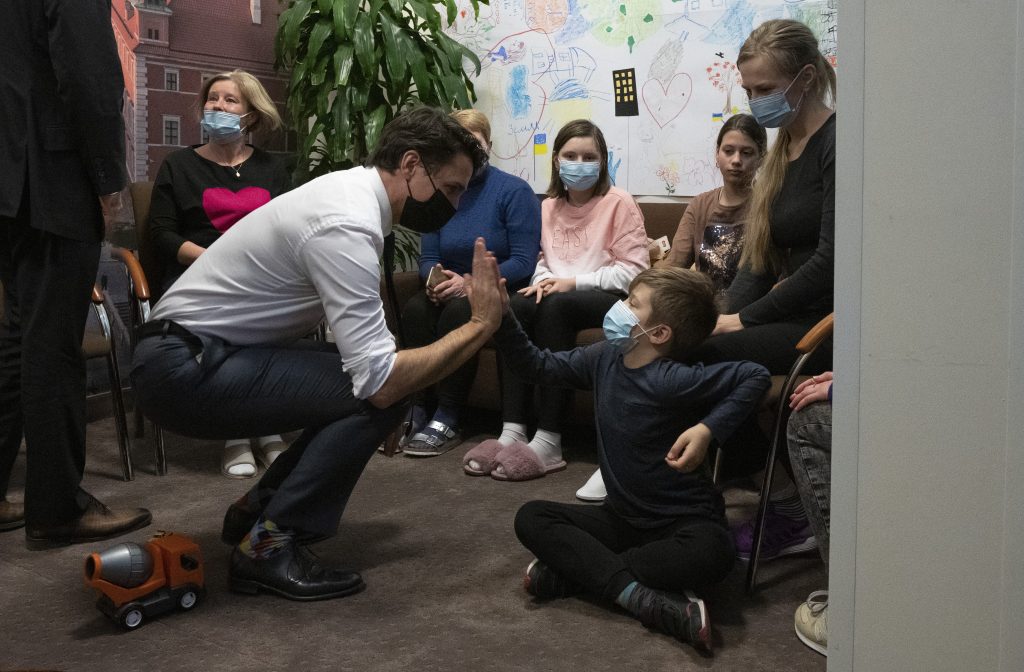Canada News
Extend special immigration measures to other crises: House of Commons committee

OTTAWA — Canada’s treatment of Ukrainians fleeing war has been distinctly different to those fleeing other humanitarian crises, the House of Commons immigration committee said Wednesday, and MPs want that to change.
The committee voted Tuesday to issue a public statement, urging the government to provide the same special immigration measures it extended to Ukrainians to refugees from other regions.
The statement reads that “time is of the essence,” and said the committee calls on the immigration minister to ensure Canada’s response to humanitarian crises in other regions “are treated with the same vigor as Ukraine.”
Canada has expedited immigration applications from Ukraine and created an extraordinary program to allow Ukrainian citizens and their families to come to Canada and work or study for three years while they decide their next steps.
The program does not apply to non−Ukrainians who fled the country.
Canada has received 112,000 applications from people fleeing Ukraine and has so far approved more than 26,500, Immigration Minister Sean Fraser said at a press conference Wednesday.
The MPs on the committee say the measures should also be available to Afghans who are still in their Taliban−controlled home country, and refugees from other regions facing humanitarian crises such as Yemen, Myanmar and China.
Fraser didn’t address the committee’s request in his press conference, but did say Canada remains “extremely committed” to helping people escape Afghanistan.
Canada has so far welcomed 10,025 Afghans since August 2021, when the Taliban took control of the country.
In a statement Wednesday, a spokesperson for Fraser said refugee resettlement efforts, including initiatives in Afghanistan and Syria, can take years to implement and must be accounted for in the government’s annual immigration−level targets tabled in Parliament.
Meanwhile, consultations with the Ukrainian community reveal many wish only to come to Canada temporarily and then return home when it is safe.
“We will continue to look at more ways that Canada can settle refugees, complementary to our resettlement efforts,” spokeswoman Aidan Strickland said in a statement. “Each situation is unique and should be considered as such to ensure that Canada is responding accordingly.”
UN High Commissioner for Refugees Filippo Grandi applauded Canada’s actions to bring Ukrainians to a safe haven, but also reminded government officials of other refugee crises.
In February, before Russia’s violent invasion of Ukraine, the UN refugee agency counted about 84 million refugees and displaced people worldwide.
“Since then, that number has probably grown to well over 90 million. We must be in the region of 95 million now,” Grandi said at the press conference with Fraser.
Grandi was in Ottawa Wednesday to announce a new global task force, chaired by Canada, aimed at finding other ways to bring refugees to safe countries.
The initiative builds on a Canadian pilot program to allow skilled refugees to apply for permanent residency through economic channels. The idea is to bring additional refugees to the country, in addition to those welcomed through humanitarian processes.
The pilot removed some of the barriers that would traditionally have precluded refugees from applying for permanent residency in Canada through economic channels.
It was expanded late last year to accommodate 500 skilled refugees, and Fraser says he hopes to see even more welcomed under the program in the future.
NDP immigration critic Jenny Kwan says the idea behind the pilot program is great, but she has noted some issues with the execution. For example, the program is supposed to include a loan option to allow refugees to meet the economic requirements to support themselves when they come to Canada, but that loan is not yet available.
This report by The Canadian Press was first published April 6, 2022.
Laura Osman, The Canadian Press





















